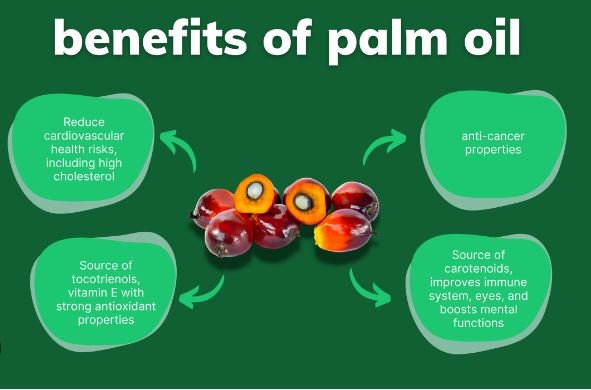Stay updated on the latest trends and developments within the palm oil industry.
In the ever-changing environment of the palm oil business, being ahead of the curve is not a choice; it is a need. It’s business is a fast-paced industry that is always confronted with new difficulties and possibilities. To prosper and thrive in this competitive market, it is critical to remain current on the newest trends and advances. In this thorough book, we will look at the essential features of the palm oil sector, the newest developments, and how you can keep educated to make informed decisions.

Understanding the Palm Oil Industry
Before diving into the latest trends, let’s establish a foundational understanding of the palm oil industry.It is one of the most widely used vegetable oils globally, finding its way into various products, from food items to cosmetics and biofuels. The production of oil primarily occurs in tropical regions, with Malaysia and Indonesia being the largest producers.

The industry has faced its fair share of controversies, primarily due to environmental concerns related to deforestation and habitat destruction. However, it is essential to note that oil is a versatile and efficient crop, making it crucial for global food security and economic development in many producing countries.
Key Trends in the Palm Oil Industry
1. Sustainable Practices
One of the most significant trends in the palm oil industry is the shift towards sustainability. With increasing awareness of the environmental impact of oil production, consumers and businesses alike are demanding sustainable sourcing practices. Sustainable oil certification programs, such as RSPO (Roundtable on Sustainable Palm Oil), have gained prominence. These programs aim to ensure that palm oil is produced in an environmentally responsible and socially equitable manner.

2. Technological Advancements
Change is being driven by innovation in the palm oil industry. Technological improvements are increasing the efficiency of palm oil production while decreasing its environmental impact. Automation and data-driven solutions are becoming increasingly common, enabling for more precise plantation monitoring and management.

3. Regulatory Changes
Governments and international organizations are establishing stronger rules to address the environmental and social challenges linked with palm oil cultivation. Staying up to date on these rules is critical for organizations participating in the sector, since noncompliance can have serious implications.

4. Alternative Oils
Demand for alternative vegetable oils is increasing as customers grow more health-conscious and ecologically conscientious. To satisfy shifting market demands, palm oil producers are looking into algae-based oils and other sustainable alternatives.

How to Stay Informed
Now that we’ve reviewed some of the important trends in the palm oil sector, let’s talk about how you can stay up to speed on these changes in order to make educated business decisions..
1. Industry News and Publications
Reading industry-specific news and periodicals on a regular basis is a critical step in remaining updated. Subscribing to credible sources that cover palm oil news, market trends, and regulatory developments is a good idea. Palm Oil Monitor and The Oil Palm are two well-known journals in this subject.
2. Join Industry Associations
Consider joining industry associations like the RSPO and the Malaysian Palm Oil Council. These organizations provide valuable insights, updates, and networking opportunities within the palm oil sector. Being part of such associations can keep you at the forefront of industry developments.
3. Attend Conferences and Webinars
Participating in conferences, webinars, and seminars is an excellent way to gain firsthand knowledge from industry experts. These events often feature discussions on the latest trends, best practices, and emerging technologies in oil production.
4. Collaborate and Network
Networking is a powerful tool for staying updated in any industry. Connect with professionals, researchers, and organizations involved in this oil sector. Engaging in meaningful discussions and sharing insights can provide valuable perspectives on industry developments.
5. Continuous Learning
Invest in ongoing education and professional development. Enroll in the oil production, sustainability, and environmental management courses or training programs. Keeping up with best practices and changing technology will keep you ahead of the competition.
Finally, the oil sector is always changing, influenced by environmental, sociological, and market considerations. To thrive in this fast-paced industry, it is critical to keep up with the newest trends and advances. You may position yourself and your company for success in the ever-changing oil market by actively participating in industry news, associations, conferences, networking, and continual learning.
Remember, knowledge is power, and in oil industry, staying informed is the key to making sustainable and profitable decisions.
Five Benefits Of Palm Oil
- It helps in improving vision.
- It helps in preventing cardiovascular issues.
- It helps in reducing the risk of cancer.
- It helps in providing naturally soft skin.
- It helps to improve hair growth.
also read: Understanding PB Fintech Share Price And Trends In 4 Points
image source: google




































